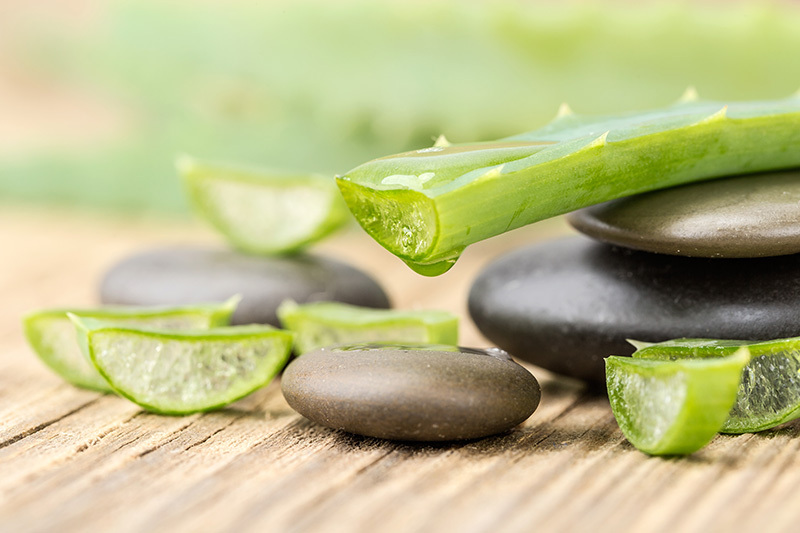Simple Habits to Make Your Cut Flowers Last Longer
Cut flowers add instant charm, color, and vibrancy to any space--whether on your dining table, office desk, or as a gift to a loved one. However, their beauty can sometimes be fleeting if not cared for properly. Fortunately, there are simple, effective habits you can adopt to extend the life of your fresh-cut flowers. This comprehensive guide will delve into proven tips and expert tricks that ensure your flowers stay fresher, brighter, and more beautiful for as long as possible.

Why Do Flowers Wilt Quickly?
Before jumping into the best practices for prolonging the lifespan of cut flowers, it's crucial to understand why they wilt and deteriorate. Once flowers are separated from their root system, they lose their natural source of water and food. This makes them highly susceptible to bacteria, dehydration, and environmental stresses. Factors such as improper cutting technique, contaminated water, and sunlight exposure significantly affect how long your fresh flowers last.
1. Choose the Freshest Flowers
Inspect Before Buying
The longevity of your bouquet starts with your selection. Whether shopping at a local florist, supermarket, or farmers' market, follow these steps:
- Inspect the Petals: Look for perky, unblemished petals. Avoid flowers with brown spots, wilting, or dry edges.
- Check the Stems: Stems should be sturdy and green, not mushy or slimy.
- Consider Bud Stage: For maximum longevity, select blooms that are still in bud or just starting to open.
Pro tip: Flowers like lilies and tulips continue to bloom after being cut, so buds are a particularly good choice.
2. Trim Stems Properly
Cut at an Angle
Using a clean, sharp knife or garden shears, cut the stems at a 45-degree angle. This increases the surface area for water absorption and prevents the stems from resting flat against the bottom of the vase (which can block water uptake).
- Trim 1-2 inches off the bottom every two to three days.
- Make all cuts under running water or submerged to prevent air from entering the stems.
This is one of the best habits to extend the life of your cut flowers.
3. Use Clean Vases
Bacteria are the enemy of fresh cut flowers. Dirty vases harbor bacteria that quickly infect water and stems, contributing to early decay.
- Wash vases thoroughly with hot soapy water before each use.
- Rinse well to remove any soap residue.
A simple disinfecting rinse with a mild bleach solution (1:10 bleach to water) can also help prevent microbial growth.
4. Add Flower Food or Homemade Solutions
Why Flower Food Works
Most bouquets come with a packet of commercial flower food. These blends of sugar, acidifier, and disinfectant not only nourish your flowers but keep bacteria at bay. If you run out, you can easily whip up your own flower preservative.
- DIY Flower Food Recipe:
- 2 cups water
- 2 tablespoons lemon juice
- 1 tablespoon sugar
- 1/2 tablespoon bleach (optional)
- Mix and use in place of commercial sachets.
Remember: Fresh water combined with the right nutrients is key to making cut flowers last longer.
5. Change Water Regularly
The Water Rule
Vases should never contain cloudy or stagnant water! Replace the water every 2-3 days--even daily if possible. Each change is an opportunity to rinse stems, re-trim, and remove any leaves that have fallen beneath the waterline.
- Use room temperature water (unless your bouquet includes bulb flowers--then use cooler water).
- Always add fresh flower food with each new fill.
6. Remove Foliage Below Water Level
Any leaves submerged in water will rot quickly, promoting bacterial growth. As a simple habit to extend flower life:
- Strip all leaves from the stem that would be under the waterline.
- Check periodically as petals and foliage may loosen and drop off as flowers age.
7. Mind Your Arrangement's Location
Keep Them Cool
Temperature plays a significant role in how long cut flowers last. To prolong your flower display, keep these placement tips in mind:
- Avoid Direct Sunlight: Excessive heat shortens the vase-life of most flowers.
- Keep Away from Appliances: Radiators, televisions, and direct heat sources dry flowers out.
- Don't Place Near Fresh Fruit: Ripening fruit emits ethylene gas, which accelerates floral aging.
- Find a Cool Spot: Cooler locations (out of drafts) will preserve freshness longer.
Tip: You can refrigerate your arrangement overnight to extend freshness--just remember to bring it back to room temperature gradually the next morning.
8. Choose Vase Shapes Wisely
The shape and size of your vase impact how well flowers hydrate and breathe.
- Ensure the vase is tall enough to support longer stems and wide enough to allow flower heads to spread naturally.
- Avoid overcrowding, as packed stems restrict airflow.
9. Remove Fading Flowers Promptly
As some flowers begin to wilt or decay, they can produce ethylene and introduce bacteria into the water, reducing the life of the rest. Regularly inspect your arrangement and pluck out any faded blooms, browning leaves, or fallen petals.
This not only improves the look but helps keep the whole bouquet healthy!
10. Special Tips for Popular Flowers
Roses
- Remove guard petals (outermost ones) to expose fresh blooms.
- Recut stems every two days.
- Avoid letting leaves rest in water.
Tulips
- Use cold water for the vase.
- Recut stems often, as tulips keep growing even after being cut!
- Support droopy stems by placing in a tall, narrow vase.
Hydrangeas
- Dip stem ends in boiling water for 30 seconds before arranging to prevent wilting.
- Mist heads with water to maximize moisture intake.
Common Myths About Keeping Cut Flowers Fresh
Let's debunk a few persistent flower care myths:
- Pennies in Water? While copper can serve as a mild fungicide, pennies minted after 1982 contain little copper and provide no real benefit.
- Aspirin as Flower Food? Aspirin can lower water pH, but it isn't proven to prevent bacteria and isn't a replacement for true flower food.
- Bleach in Large Amounts? Too much bleach will kill not only bacteria but your flowers, too. Use small amounts with caution.
Creative Ways to Reuse Fading Blooms
Even with the best cut flower care habits, all bouquets eventually fade. Here's how to give them a second life:
- Dry the best blooms for use in crafts, wreaths, or potpourri.
- Remove petals for bath soaks or homemade confetti.
- Press flowers between the pages of a book to create lasting art.
Frequently Asked Questions about Longer-Lasting Cut Flowers
How often should I change the water in the vase?
Every two to three days--or sooner if you notice the water getting cloudy.
Can I put cut flowers in the fridge?
Yes! Storing arrangements in the fridge overnight slows down the decay process. Just keep them away from fruit and return to room temperature before display.
Should I use tap or distilled water for my flowers?
Most flowers are fine with clean tap water. If your water supply is very hard or softened, consider using filtered or distilled water for optimal results.
Can adding vodka or soda extend the vase life?
Vodka can act as a preservative in minuscule amounts, but it's not necessary. Clear soda (like sprite) adds sugar, which can benefit flowers--just use it sparingly to avoid sticky buildup.
What should I do if my flowers are droopy?
Try re-trimming the stems and placing the bouquet in fresh, tepid water. For extremely droopy blooms like hydrangea, submerge the whole flower head in water for 30 minutes to revive it.

Summary: The Ultimate Habits for Longer-Lasting Cut Flowers
Caring for cut flowers doesn't need to be time-consuming or expensive. By practicing these simple habits to make your cut flowers last longer, you can enjoy brilliant, revitalized bouquets for days or even weeks. To recap, remember to:
- Choose the freshest blooms possible
- Trim stems at an angle and re-trim every few days
- Use clean, bacteria-free vases
- Add flower food or a homemade solution
- Change water regularly
- Remove foliage below the waterline
- Keep arrangements cool and away from ethylene-producing fruit
- Promptly remove wilting flowers and debris
- Choose the right vase for your arrangement
With minimal effort, these good cut flower care routines will help your stunning arrangements last--and delight--all season long. Next time you bring home a bouquet or receive one as a gift, put these practices into action for truly long-lasting blossoms!
Ready to Enjoy Your Fresh Flowers Even Longer?
Try these easy steps to prolong the life of your cut flowers, and share your favorite flower care hacks with us! The next time you give or receive a bouquet, you'll know exactly how to keep it looking its best. Happy arranging!

